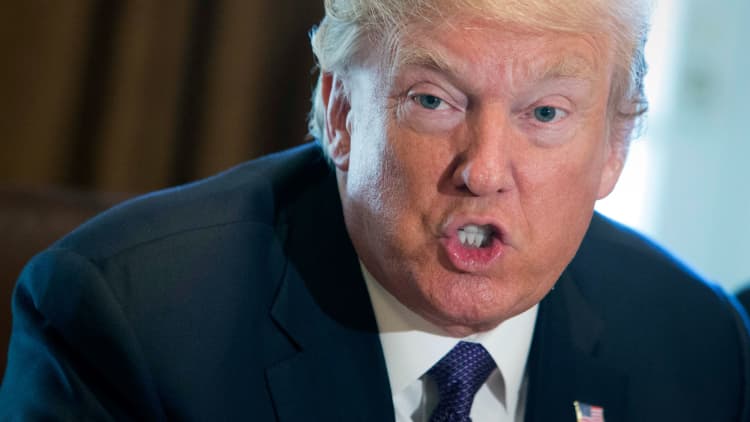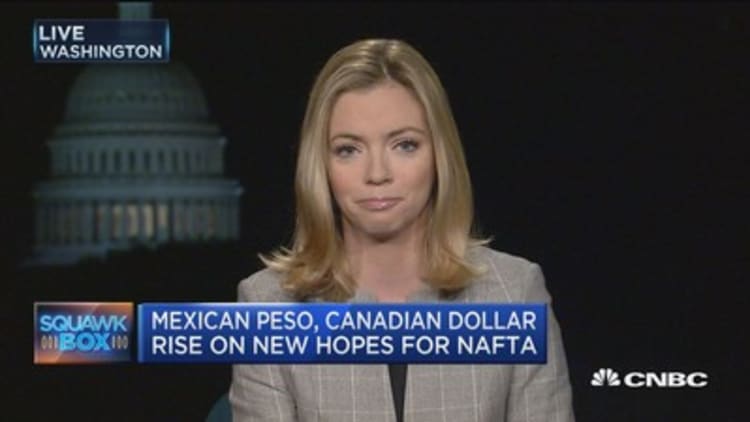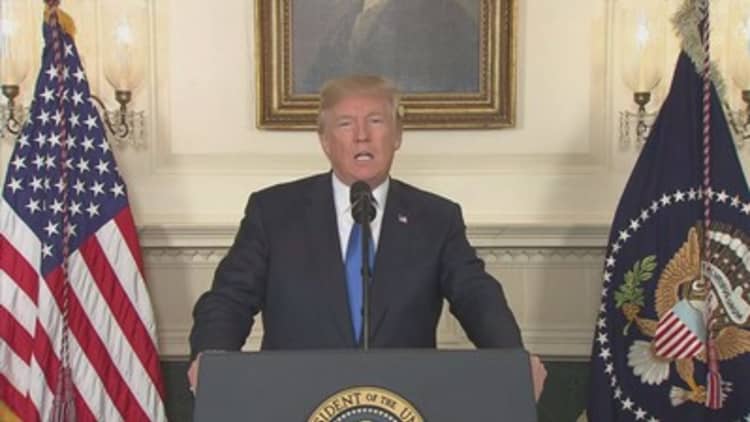
In exchange for supporting a deal to restore billions of dollars in federal reimbursements to health insurers, the Trump administration would want the suspension of enforcement of Obamacare mandates that have expanded health coverage, as well as several other conditions.
The steep demands, laid out for CNBC by a White House spokesman, further complicate the chances of passage for a bipartisan deal in Congress that aims to restart the payments and keep many insurers from leaving the Obamacare exchanges altogether.
President Donald Trump last week ended the payments, which reimburse Obamacare insurers for discounts given to low-income customers in their health costs.
Insurance prices already were much higher for next year because of his prior threat to kill the payments. They are projected to be even higher in coming years because of Trump's action.
Since then, a number of senators, along with groups representing health providers, patients and others, have clamored for Congress to restore the payments.
Earlier this week, Sens. Lamar Alexander, R-Tenn., and Patty Murray, D-Wash., unveiled such a proposal.
Alexander said Thursday the bill has 24 co-sponsors in the Senate — 12 Republicans and 12 Democrats. Republicans hold the majority of seats in the chamber.

Trump has given conflicting signals about whether he would support that proposal.
On Wednesday, the president repeated his vow that he would not back a deal that provides "bailouts" for insurers.
CNBC asked the White House for clarification on what would constitute a "no-bailout" deal for insurers.
In response, a White House spokesman, speaking on background, said that for the administration to support legislation like the Alexander-Murray deal, the plan would have to provide immediate benefits to Americans. Those benefits would include relief from enforcement of Obamacare individual and employer mandates, the spokesman said.
The individual mandate requires nearly all Americans to have some form of health insurance or face a tax penalty. That health coverage can be from a job-based insurance plan, an individual market plan, Medicaid, Medicare, or coverage through a military plan, as well as from several other sources.
The employer mandate requires employers with 50 or more full-time workers to offer its employees affordable health coverage, or pay a penalty.
The individual mandate, in particular, has been credited with helping add 20 million people to the ranks of Americans with health coverage in the years since the Affordable Care Act became law.
Insurers and Obamacare advocates would be strongly opposed to the suspension of enforcement of that mandate because it could lead to an exodus of younger, healthier customers from insurance plans. If that were to happen, the remaining risk pool of insurance customers would tend to be older, and sicker, increasing the cost of the health plans because of their higher use of medical services.
That, in turn, could lead to a "death spiral" for Obamacare plans. In a death spiral, premium rates have to be raised sharply again and again to account for higher costs, which leads to departures of healthier customers who don't see the value of maintaining coverage in the face of those prices.
Earlier this year, the Congressional Budget Office, in analyzing a Senate plan that would repeal both Obamacare mandates, said 16 million Americans would become uninsured over the next decade. CBO also projected that individual health plan premiums would be 20 percent higher than they would be under the current law.
The White House spokesman said the administration also would want affordable health coverage options for consumers expanded in order to win support of a bill to restore the CSR payments to insurers.
As an example, the spokesman cited Trump's executive order on health care last week, which ordered federal agencies to explore loosening rules controlling short-term health plans, and association plans offered by groups of small businesses.
Both types of plans would tend to be less expensive than plans sold on Obamacare marketplaces. But they also would tend to offer fewer health benefits.
The spokesman said another condition of the administration's support of a deal is that it includes flexibility for states to obtain waivers for their residents from compliance with Obamacare rules about their health plans.
WATCH: Trump says there's no such thing as Obamacare anymore




